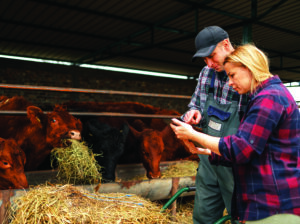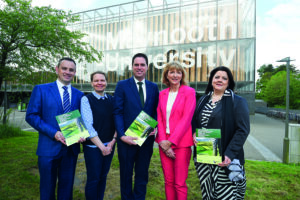Socioeconomics & farm safety
Underreporting injuries hampers farm safety

Credit: iStock (Georgijevic)
David Meredith, John McNamara, Diana van Doorn
Official statistics do not provide accurate measures of the level of farm injuries or their impacts on farmers, farm businesses or farm households, as these injuries are rarely reported in Ireland or across the EU.
As part of the EU-funded SafeHabitus project, Teagasc researchers completed research highlighting statistical limitations of currently available data and proposing farm safety variables for inclusion in the annual EU Farm Sustainability Data Network (FSDN) survey. The research team leveraged Teagasc’s National Farm Survey’s 20 years of experience collecting such data to demonstrate tangible benefits for policy development.
This involved strategic multi-level engagement: first with EU policymakers at the European Commission’s Directorate-General for Employment, Social Affairs and Inclusion, and secondly with the Directorate-General for Agriculture and Rural Development through formal workshops and informal meetings. This was followed by mobilising partners involved in the SafeHabitus project across 11 member states. Each partner liaised with their national FSDN coordinator to advocate for the inclusion of key variables summarising the number of work-related injuries on farms, whether a farm has a farm safety plan, and whether safety training was provided to workers and family members. This coordinated approach resulted in member states agreeing to incorporate the three key safety indicators in the FSDN survey, which will be implemented from 2025 onwards.
This initiative marks the creation of the first EU-wide standardised system for monitoring farm injuries among self-employed farmers. The project showcases how research-driven advocacy can bridge policy gaps, ultimately enhancing safety standards for agricultural workers across Europe.
Contact: david.meredith@teagasc.ie
Other contributors: SafeHabitus Partners
Funding: EU Horizon Europe
Impact Pathway: Policy Influencing
National farm survey – small farms report

Credit: Milosz Maslanka/shutterstock
Emma Dillon, Trevor Donnellan, Brian Moran, John Lennon, Cathal Buckley
In 2022, through the National Farm Survey (NFS), a special survey was conducted of small farms – those with a standard output below €8,000 per annum. Information on farms of this scale – predominantly cattle and sheep farms – is not routinely collected. Small farms account for more than one-third of Irish farms (48,356) and occupy 15% of total farmland (630,000 ha), playing a key role in the continued viability of rural areas.
This project allowed for an assessment of the sustainability performance of small farms using nationally representative data. Data from the annual NFS sample on larger farms and from the small farms was then compared across economic, environmental and social dimensions.
Comparative analysis was also undertaken with NFS data on small farms collected in 2015. The 2022 survey had a particular focus on what motivated small farm operators and their expectations around the future in terms of land use and succession.
The report highlights the economic challenges faced by small farms in Ireland, their significant environmental contributions, and the social dynamics that influence their sustainability. It underscores the need for targeted policies and support to enhance the resilience and viability of small farms. The existence of a comprehensive dataset on farm-level sustainability is critical in meeting reporting requirements for Common Agricultural Policy monitoring and evaluation and the design of future agricultural policy.
Contact: emma.dillon@teagasc.ie
Funding: Teagasc core funding
Impact Pathway: Policy Influencing
Sustainable transition through generational renewal

Credit: Maxwell photography
Anne Kinsella
The ‘Sustainable Transition of the Rural Economy Through Generational Renewal’ project was completed in 2024. The project concluded that sustainable generational renewal programmes need a dual focus. Firstly, they require a framework of supports for adequate retirement income provisioning for retiring farmers (and their dependants) within a clear exit strategy from the farm. Secondly, a framework is required to enable farm successors and new entrants a formal route to farm ownership through collaborative farming and alternative farm business structures.
In addition to desk-based research, the project team conducted case study interviews with farmers, advisors and other stakeholders. A final project report containing key policy recommendations was launched by Minister of State for Agriculture, Food, Fisheries and the Marine, Martin Heydon, TD. Subsequently, the research team were invited to discuss the key project findings and policy recommendations with the Common Agricultural Policy (CAP) Entitlements Policy & Control Unit in the Department of Agriculture, Food and the Marine to inform recommendations for the next round of CAP reform.
The research team also – by invitation – presented their policy recommendations to the Generational Renewal Commission, who were most interested in the research findings – particularly regarding the pension policy reforms aspects and their role in assisting farmers and their dependants to qualify for state pension support. Other high level policy impacts include presentation at the annual conference of the Irish Pensions Policy Research Group, European Committee of the Regions in Brussels, and the inclusion of project recommendations in an Irish Farmers’ Association pre-budget submission report.
Contact: anne.kinsella@teagasc.ie
Other contributors: Maynooth University
Funding: Department of Agriculture, Food and the Marine
Impact Pathway: Policy Influencing
